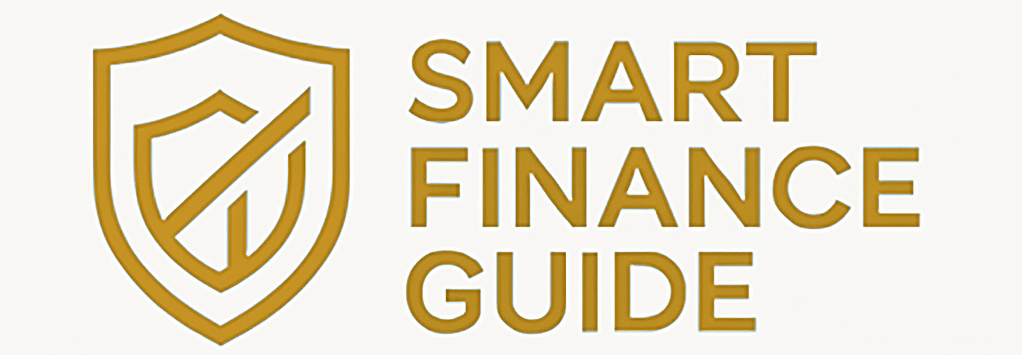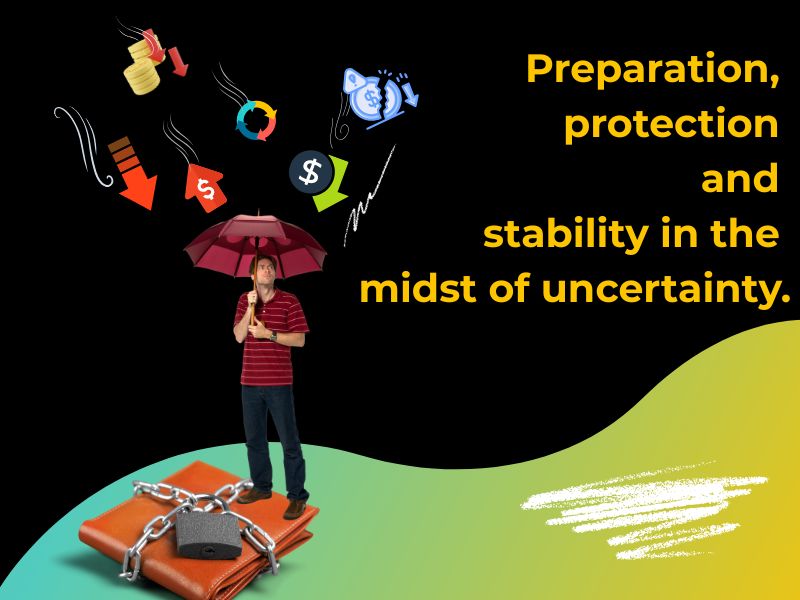Recessions are a normal part of the economic cycle — but they can still be frightening, especially if you’re not financially prepared. Job losses, market volatility, rising costs, and uncertainty can quickly create stress if your finances aren’t in order.
The good news? With proactive planning, you can protect yourself, minimize risk, and even find opportunities during tough times.
In this article, you’ll learn practical steps to recession-proof your finances and gain confidence in any economic climate.
What Is a Recession?
A recession is a period of economic decline lasting at least two consecutive quarters, typically marked by:
- Decreased consumer spending
- Rising unemployment
- Business slowdowns
- Stock market volatility
While temporary, recessions can last from a few months to several years — and their impact depends on your financial stability.
Step 1: Build or Strengthen Your Emergency Fund
Your emergency fund is your first line of defense in a recession.
- Aim for 3 to 6 months of essential expenses
- Store it in a high-yield savings account for easy access
- Increase contributions when income is steady
✅ This gives you breathing room if you lose income or face unexpected bills.
Step 2: Review and Reduce Non-Essential Spending
Now is the time to cut back on:
- Subscriptions you rarely use
- Dining out or luxury items
- Impulse online shopping
✅ Track spending weekly and reallocate savings to essentials or your emergency fund.
Step 3: Pay Down High-Interest Debt
Carrying credit card debt during a recession is risky — especially if your income drops.
- Focus on paying off variable-rate and high-interest debts first
- Avoid new debt for non-essential purchases
- Consider transferring balances to a 0% interest offer if available
✅ Reducing debt improves cash flow and reduces financial stress.
Step 4: Diversify Your Income
If possible, add a side hustle, freelance work, or part-time job to reduce reliance on a single income source.
Ideas:
- Online tutoring or teaching
- Freelancing (writing, design, tech)
- Selling products or services online
- Gig economy (rideshare, delivery)
✅ Extra income now provides a cushion if your main job is affected.
Step 5: Review Job Security and Upskill
Ask yourself:
- Is my industry vulnerable during downturns?
- What would I do if I lost my job?
- Do I have transferable skills?
Proactive steps:
- Update your résumé and LinkedIn
- Build an emergency network
- Take low-cost courses to learn new, in-demand skills
✅ Those who upskill are more likely to weather layoffs and find new opportunities faster.
Step 6: Stay Invested — Don’t Panic Sell
Market dips are scary, but selling in a downturn locks in losses. History shows the market recovers over time.
- Keep contributing to 401(k), IRA, or brokerage accounts (if possible)
- Use dollar-cost averaging
- Rebalance, but don’t try to time the market
✅ Recessions can be opportunities to buy investments at a discount.
Step 7: Avoid Big Financial Commitments
Delay:
- Buying a new car or home
- Taking on new loans or business debt
- Major luxury purchases
✅ Preserve flexibility and liquidity until conditions stabilize.
Step 8: Protect Your Credit
In hard times, your credit score is more important than ever.
- Pay all bills on time
- Keep credit card balances low (below 30% utilization)
- Don’t close old accounts unnecessarily
✅ A good credit score gives you access to better rates and more options in emergencies.
Step 9: Communicate With Lenders Early
If you face financial hardship:
- Contact mortgage, loan, and credit card providers
- Ask about deferment, forbearance, or hardship programs
- Get terms in writing
✅ Being proactive avoids collections and protects your credit.
Step 10: Stay Calm and Informed
Recessions cause anxiety — but panic leads to poor decisions. Stay informed, not overwhelmed.
- Follow reliable news, not social media hype
- Revisit your budget monthly
- Focus on what you can control
✅ Smart decisions now create stability and opportunity later.
Final Thoughts: Strength Builds in Uncertainty
You can’t predict the economy, but you can prepare for it. Recession-proofing your finances is about resilience, discipline, and clarity.
With an emergency fund, smart spending, manageable debt, and a steady mindset, you can weather any storm — and come out stronger on the other side.
FAQ – How to Financially Prepare for a Recession.
What is a recession and how long can it last?
A recession is a period of economic decline lasting at least two consecutive quarters, often marked by job losses, less consumer spending, and market instability. It can last months or even years.
How much should I have in an emergency fund for a recession?
Aim for 3 to 6 months of essential expenses in a high-yield savings account. This fund gives you financial breathing room if your income is disrupted.
Should I pay off debt before a recession hits?
Yes. Focus on high-interest and variable-rate debt like credit cards. Reducing debt improves your cash flow and lowers stress if your income drops.
Is it a good idea to keep investing during a recession?
Yes. Avoid panic selling. Continue investing regularly if you can — recessions often present long-term buying opportunities.
What else can I do to prepare financially?
Cut non-essentials, avoid big purchases, upskill for better job security, and consider adding extra income sources. Stay informed and adjust your budget regularly.

